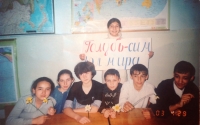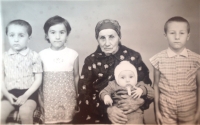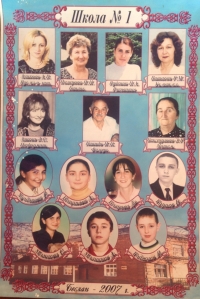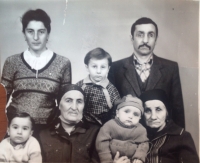The end of the war I just looked at the sky, there were no planes. It still seemed to me that they could come flying again I was so happy that there were no planes, and I believed they would never appear again
She was born on September 11th, 1933 in Gdansk, Wrzeszcz as the oldest of three siblings. Her father was commissioned into the Wehrmacht in 1940. Her mother together with her children returned to her family house in Gdansk, Stogi. Regina attended the German school and then gymnasium. After a failed attempt to escape from the city in late March 1945, the family hid in the bunker. A few days after they were found by the Russians. They all were chased to the church where they stayed until the end of the war. Their house was bombed and burned. The mother and brother suffered from typhoid. After the war the family managed to find an apartment to stay in Gdansk. They decided to wait for the father, who finally returned from captivity in Norway in December 1945. Her mother wanted to leave for Germany, but her father wanted to stay in Gdańsk what they did. Regina attended the Polish school. Right after graduating she got married and moved to Rzeszów where she gave birth to her first daughter. After two years, they returned to Gdansk. Her husband died and she had to take a job as an accountant. Then she was employed in the City Hall. Soon after she got married again and gave birth to a son. She worked as a secretary of the chairman of the City Council and as a translator. She was leaving on many business trip to Germany. She worked over 30 years in the City Hall, and then for eight years in the German consulate in Gdansk.



